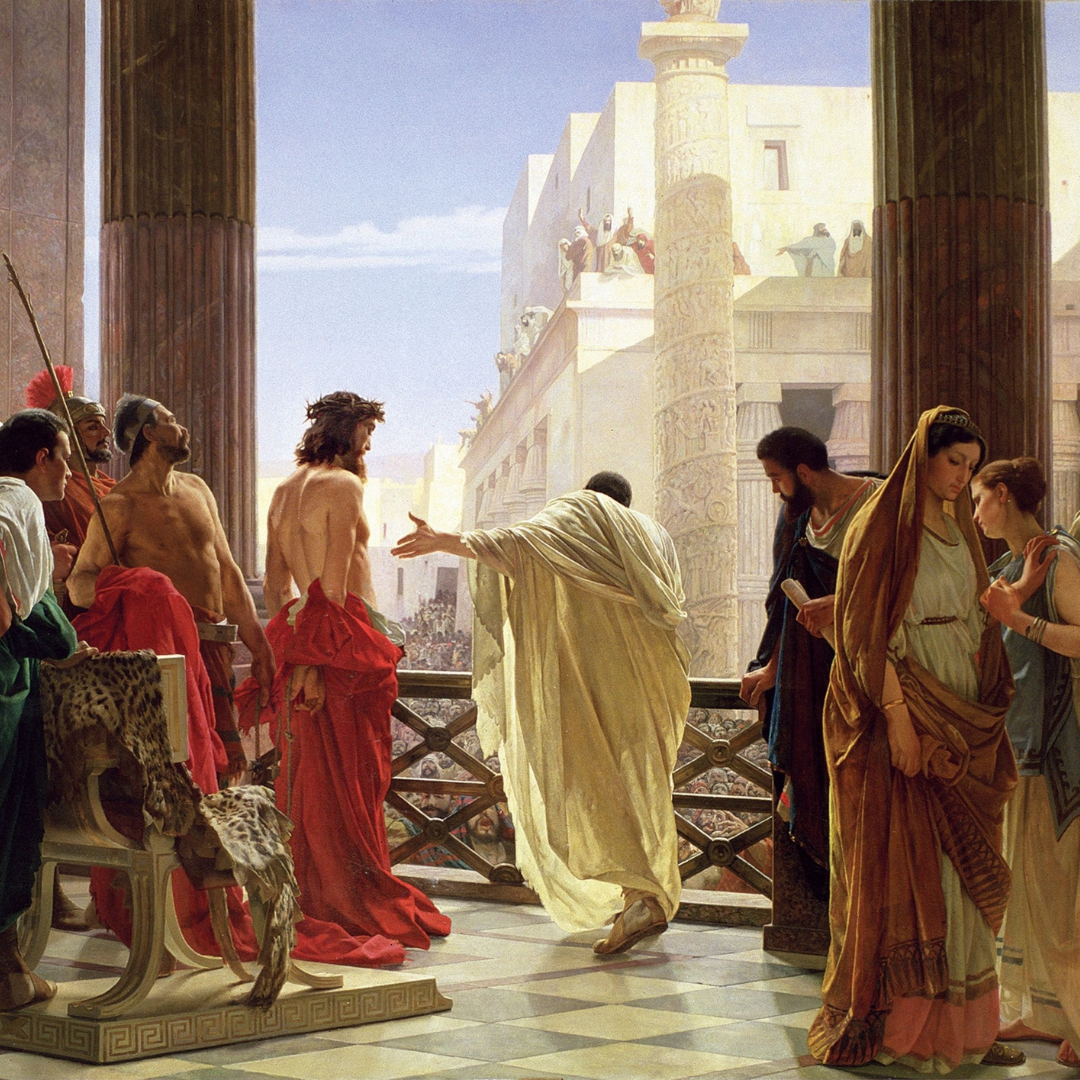By Pastor Stephen Hess –
When Jesus was on trial before Pilate, the governor asked him, “Are you the King of the Jews?” (Jn. 18:33). Pilate had heard that Jesus was claiming to be a king, and he wanted to determine whether Jesus was guilty of trying to stir up an insurrection. In Pilate’s mind there were only two possible answers to this question. Jesus could either admit that he was acting as a king who was challenging Roman authority, or he could deny that he was acting as a king and submit to Roman authority.
Yet as he so often did during his ministry, Jesus gave Pilate a third answer that defied simple categories. He said, “My kingdom is not of this world. If my kingdom were of this world, my servants would have been fighting, that I might not be delivered over to the Jews. But my kingdom is not from the world” (Jn. 18:36). With these words, Jesus was not denying that he claimed to be a king, yet at the same time he was making clear that his kingdom was not like the kingdoms of this world and would not fit into the categories of this world.
As the rest of the New Testament makes clear, Christ’s kingdom is unique from all others. The kingdoms of this world are physical, but Christ’s kingdom is spiritual. The kingdoms of this world are national, but Christ’s kingdom is global. The kingdoms of this world reflect human agendas, but Christ’s kingdom reflects a divine agenda. The kingdoms of this world are established through power, but Christ’s kingdom is established through suffering.
 These realities are extremely important for American Christians to remember as another election approaches. As the people of God, we are citizens first and foremost of Christ’s kingdom and we are called to represent his kingdom in this world. We are not called to be ambassadors for earthly politicians or political parties; we are called to be ambassadors for Christ. As we do this, we must not forget that his kingdom is not of this world and therefore it will not fit into any of the categories of this world.
These realities are extremely important for American Christians to remember as another election approaches. As the people of God, we are citizens first and foremost of Christ’s kingdom and we are called to represent his kingdom in this world. We are not called to be ambassadors for earthly politicians or political parties; we are called to be ambassadors for Christ. As we do this, we must not forget that his kingdom is not of this world and therefore it will not fit into any of the categories of this world.
This means that when we vote, we must recognize that the values of Christ’s kingdom will not fit neatly into any of the political parties of this world. This also means that Christians will come to different conclusions about which policies we should support and which candidates we should elect. When we disagree with our fellow Christians on politics, we should not pass judgment upon one another because to do so would be to elevate an earthly identity above our identity in Christ.
It’s worth remembering that when Jesus chose his twelve apostles, he chose a diverse group of men from different backgrounds and political persuasions. Among this group there were some, like Matthew the tax collector, who had supported the Roman government. There were others, like Simon the Zealot, who wanted to overthrow the Roman government! It’s safe to say that both men had to lay aside their agendas when they became disciples because Jesus wouldn’t have fully supported either of these positions. It’s also likely that these two men had some heated political arguments, and yet they became united as brothers. How was this possible? It was possible because they came to understand that their primary allegiance was to King Jesus and their primary identity was as citizens of his kingdom, which superseded all other earthly identities.
Still today, there are many people like Pilate who want to squeeze Christians into the molds of this world, sometimes offering benefits in exchange for our conformity. We must resist this temptation at all costs. We belong to an other-worldly kingdom, serve an other-worldly King, and have an other-worldly hope. Our king is not a donkey or an elephant; he is the Lamb of God who takes away the sin of the world, and our hope is in his kingdom alone.

